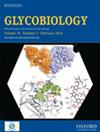(Key1-001) congenital disorders of glycosylation: Glycobiology at the bedside.
IF 3.3
3区 生物学
Q2 BIOCHEMISTRY & MOLECULAR BIOLOGY
引用次数: 0
Abstract
Congenital disorders of glycosylation (CDG) are a group of rare monogenic human disorders caused by defects in the genes encoding the proteins that generate, attach, and modify glycans, thus disrupting cellular glycosylation machinery. Over 200 CDG caused by disruptions of 189 different genes are currently known. The multi-system disease manifestations of the CDG disorders highlight the importance of glycosylation across the organ systems. Clinical manifestations of CDG tend to group among genes contributing to the same glycosylation pathways, suggesting shared pathophysiology related to the glycosylation disruptions. However, the underlying glycosylation disruptions and pathophysiologic mechanisms responsible for specific CDG clinical manifestations have been determined for only a few hypoglycosylated proteins. The Frontiers in CDG Consortium (FCDGC) is an international network of clinical sites, laboratories, and patient advocacy groups established in 2019 to improve clinical symptoms, quality of life, and life expectancy for individuals with CDG. FCDGC seeks to answer decades of unresolved questions, address knowledge gaps, develop and validate new biochemical diagnostic techniques and therapeutic biomarkers, and explore novel therapeutic options for CDG. Over the past 5 years, FCDGC has launched a Natural History Study with over 300 CDG patients, discovered novel biomarkers suggesting new mechanisms of disease, and launched clinical trials aiming to restore appropriate glycosylation and targeting newly identified potential mechanisms of disease. Technical advances in glycobiology are making it increasingly possible to comprehensively catalog glycoproteomic data and to probe functional impact of altered glycosylation. My laboratory applies glycoproteomic technologies to samples from human subjects and genetic model systems to identify glycosylation abnormalities and unlock new insights from translational glycobiology. Current findings and accomplishments highlight the ongoing bottlenecks and knowledge gaps at intersections of glycobiology and clinical care requiring further investigation.(Key1-001)先天性糖基化紊乱:床旁的糖生物学。
先天性糖基化紊乱(CDG)是一组罕见的单基因人类疾病,由编码生成、连接和修饰聚糖的蛋白质的基因缺陷引起,从而破坏了细胞糖基化机制。目前已知的由 189 个不同基因缺陷引起的 CDG 有 200 多种。CDG 疾病的多系统疾病表现凸显了糖基化在各器官系统中的重要性。CDG的临床表现往往集中在对相同糖基化途径有贡献的基因上,这表明与糖基化紊乱有关的病理生理学是共通的。然而,只有少数低糖基化蛋白的潜在糖基化紊乱和病理生理学机制已被确定,而这些机制是导致特定 CDG 临床表现的原因。CDG 研究前沿联盟(FCDGC)是一个由临床研究机构、实验室和患者权益组织组成的国际网络,成立于 2019 年,旨在改善 CDG 患者的临床症状、生活质量和预期寿命。FCDGC 致力于回答数十年来悬而未决的问题,填补知识空白,开发和验证新的生化诊断技术和治疗生物标志物,并探索 CDG 的新型治疗方案。在过去的五年中,FCDGC 已经对 300 多名 CDG 患者进行了自然史研究,发现了提示新疾病机制的新型生物标记物,并启动了旨在恢复适当糖基化和针对新发现的潜在疾病机制的临床试验。糖生物学技术的进步使我们越来越有可能对糖蛋白组数据进行全面编目,并探究糖基化改变对功能的影响。我的实验室将糖蛋白组技术应用于人类受试者和遗传模型系统样本,以确定糖基化异常,并从转化糖生物学中获得新的见解。目前的发现和成就凸显了糖生物学和临床护理交叉领域的瓶颈和知识差距,需要进一步研究。
本文章由计算机程序翻译,如有差异,请以英文原文为准。
求助全文
约1分钟内获得全文
求助全文
来源期刊

Glycobiology
生物-生化与分子生物学
CiteScore
7.50
自引率
4.70%
发文量
73
审稿时长
3 months
期刊介绍:
Established as the leading journal in the field, Glycobiology provides a unique forum dedicated to research into the biological functions of glycans, including glycoproteins, glycolipids, proteoglycans and free oligosaccharides, and on proteins that specifically interact with glycans (including lectins, glycosyltransferases, and glycosidases).
Glycobiology is essential reading for researchers in biomedicine, basic science, and the biotechnology industries. By providing a single forum, the journal aims to improve communication between glycobiologists working in different disciplines and to increase the overall visibility of the field.
 求助内容:
求助内容: 应助结果提醒方式:
应助结果提醒方式:


